Marvel’s first story about racial conflict was Avengers #32 (correct me if I’ve missed one). Stan Lee and Don Heck (who did the cover) introduce us to the Sons of the Serpent, an extremist group that recruits white Americans to target POC and immigrants. Even though the Sons turn out to be dupes of a Red Chinese agent, the story’s politics are clearly pro-civil rights.
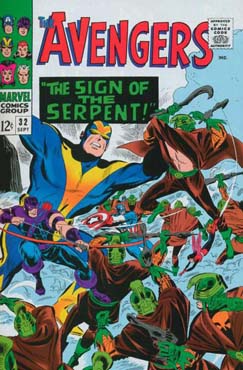
By contrast, the first Marvel superhero book to tackle women’s liberation was Avengers #83, “Come On In … The Revolution’s Fine.” In this one, there’s nobody trying to oppress or attack women; instead the villain is an evil faux feminist, the Valkyrie, who turns the women Avengers against the men as part of a scheme.
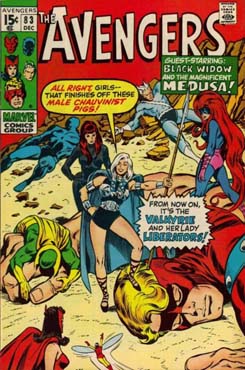
In the context of my Silver Age reread, this feels akin to some of the other “relevant” stories of 1970: both the Diamond Heads and the Thunderbolts are black gangs posing as revolutionaries. Still, it’s hard to imagine either of those stories ending with Captain America or Daredevil declaring the civil rights movement is bull, the way Goliath does with feminism (even given that Clint’s a jerk and a loudmouth).
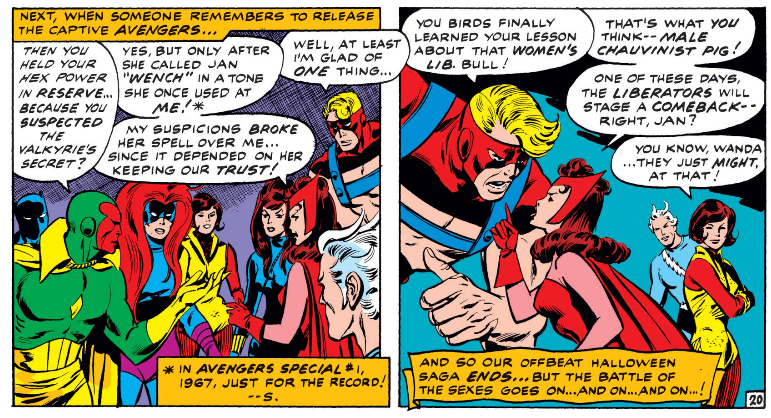
Roy Thomas later said he didn’t think he was making a statement, pro or con, about women’s liberation. I’d say he is, even if it wasn’t intentional. This story suggests women’s lib is nothing he or anyone needs to take seriously. Just look how easily even super-women can be duped by lies about how they’re oppressed —
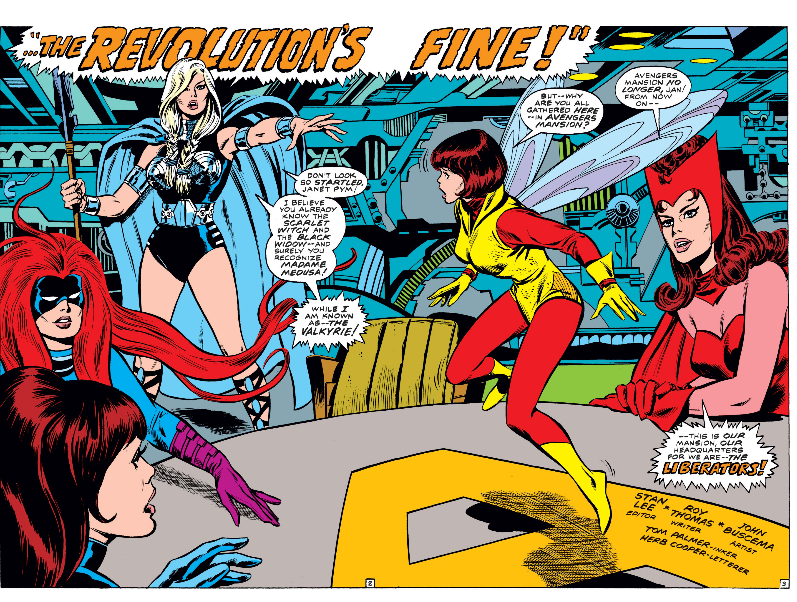
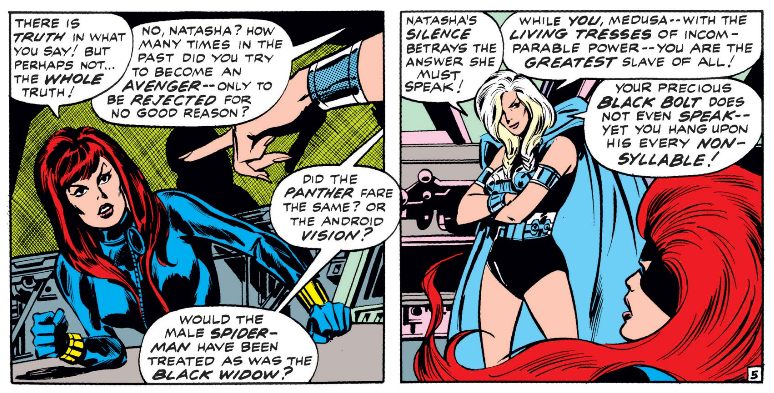
Right. Medusa being in love with Black Bolt is oppression. And Natasha has turned down Avengers membership more than once. Valkyrie’s nothing but a lying gender hustler.
The story employs several sexist tropes I’ve seen over and over in the decades since. That women are irrationally angry over imaginary oppression. That women would be perfectly happy if feminists hadn’t pulled a Jedi mind trick to make them think they were miserable. It takes real issues, like the discrimination against women in STEM —
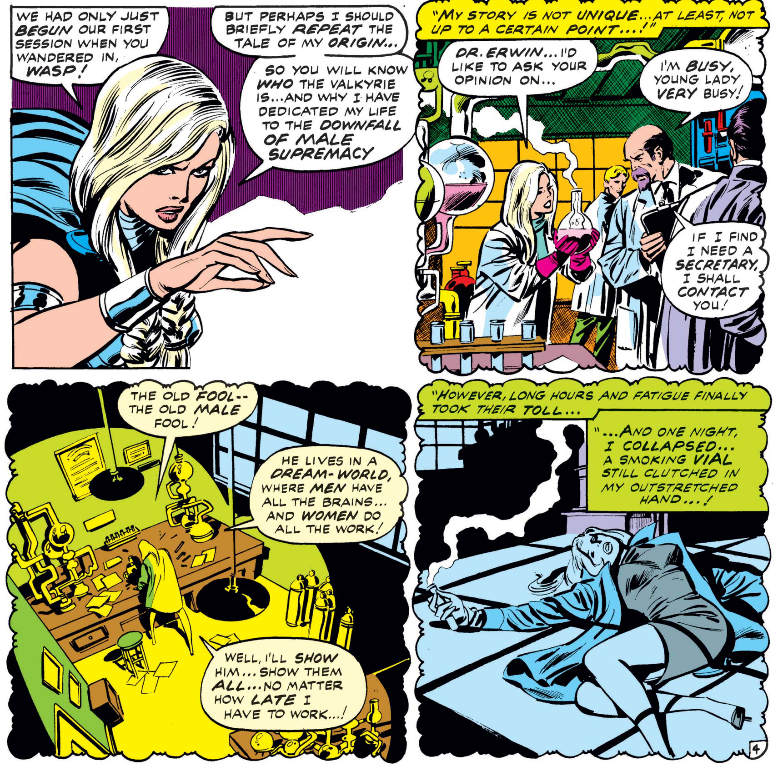
— and puts the complaints into the mouth of a villain (who made up her secret origin of sexism and discrimination).
At the climax, when it turns out Valkyrie is the Enchantress, we learn she’s not doing this for any of the usual villain reasons like power or greed. Nope, she’s PO’d because some other chick stole her boyfriend.
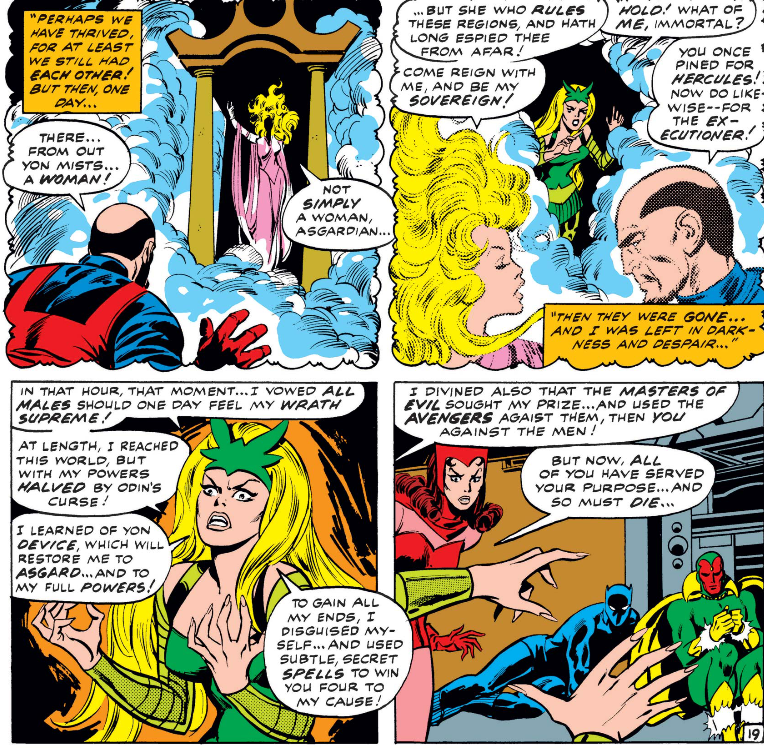
Lord knows there have been stories that were far more sexist and I can’t think of any male writer besides Cary Bates who’s written anything pro-feminist in this era. This story still has not aged well.
It’s not surprising comics were stronger on race. The injustices of Jim Crow segregation had become increasingly obvious by ’66, when the Sons of the Serpent story came out; the idea that women had anything to complain about seemed insane to lots of people, even four years later. Jeepers, women had it great: men went out and worked while women stayed home and lived lives of idle comfort. Well, if you discount all the time spent cleaning the house and taking care of the kids which often added up to more than a 40-hour week. And if you overlook that some women didn’t want that life. They wanted to be in science, or art, or business, or law, no matter how much some men assured them (and still do) that being a stay-at-home mom was the best of all possible lives and that women weren’t qualified for jobs in those fields anyway.
Some women do love being a stay-at-home mom; that’s cool. For women who don’t, being forced into a role you don’t want or aren’t suited for is a straitjacket, no matter how often someone insists they’re tying you up to make you happier. The 1950s sitcom image of marriage was so prevalent that even some women couldn’t grasp why they weren’t content. Many women have talked about how reading Betty Friedan’s The Feminine Mystique stunned them: they were crazy, the solution wasn’t taking Valium to numb their discomfort, it’s simply that the life society said they wanted wasn’t working out.
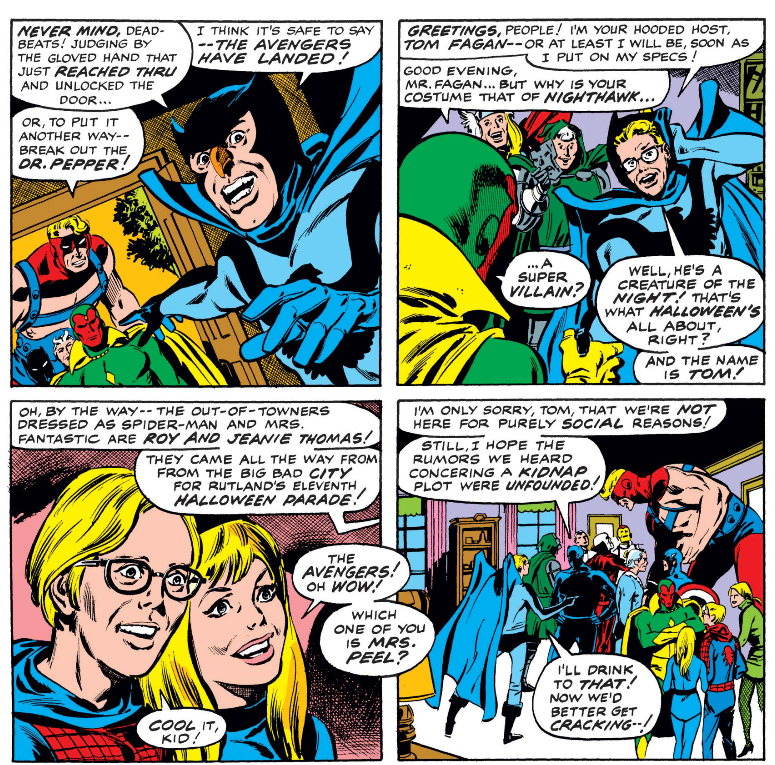
That panel of Roy and Jeanne Thomas always struck me as sexist too, as if Jeanne were a stereotypical dumb blonde. I suppose she could have been making a joke – I imagine lots of people made that joke on Earth-616 — but the scene feels condescending.
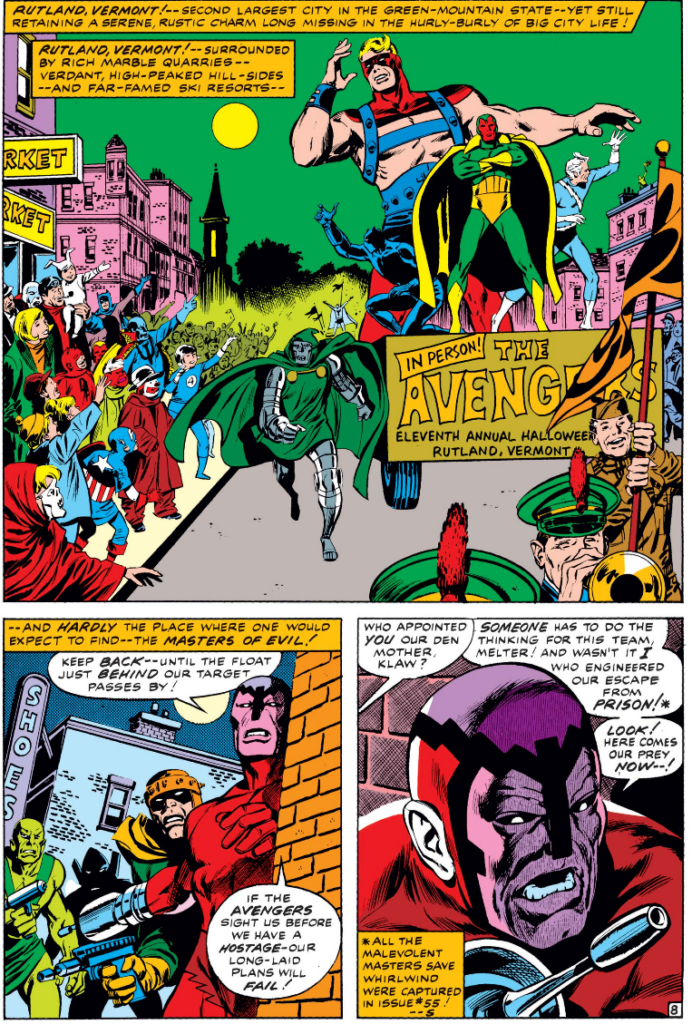
Ironically, though, when the Master of Evil show up, the Lady Liberators do better against them than the male Avengers did.
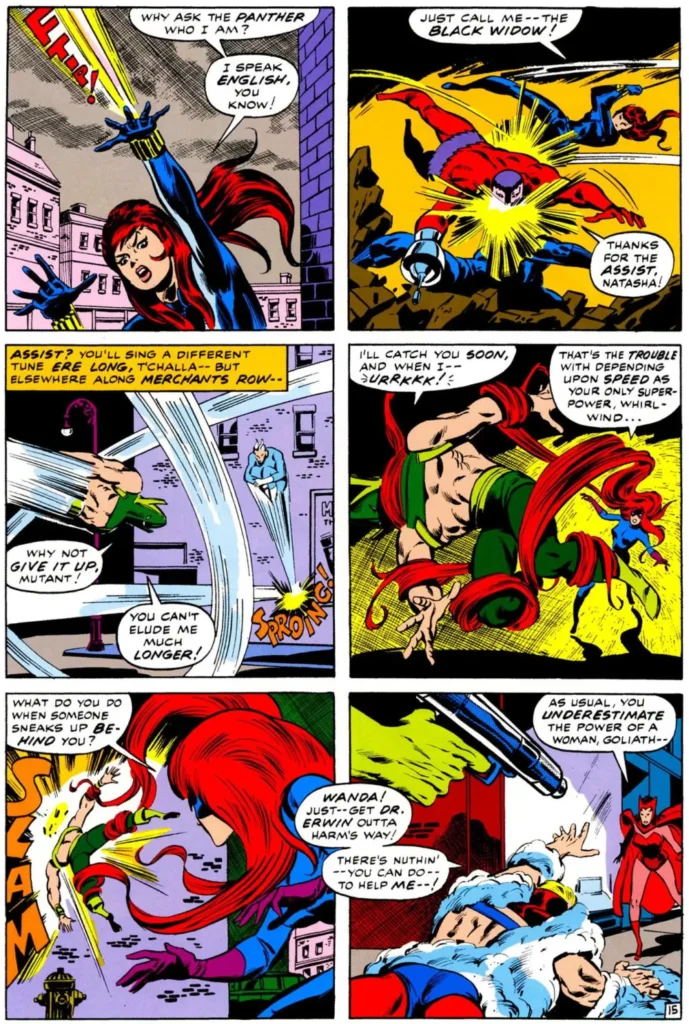
Then, of course, the woman beat up the men because feminism has unhinged them with man-hate.
As you may have gathered, this story takes place at the Rutland Halloween Parade. A cosplay event in our world that received visits from various comics writers and artists, it would appear in multiple comics stories over the next two years. This story is tame compared to some of what’s ahead.
The parade’s comic-book debut makes a much better landmark moment than the Liberators.


Clearly Natasha is Mrs. Peel – or was styled after her, anyway. Or Julie Newmar’s Catwoman, one of the two.
FWIW, I took it as a joke, not simplemindedness.
But the phrase “male chauvinist pig”, loaded as it is, just feels wrong coming from the pen of a, er, person who is a male. I know it was becoming part of the mass-culture vernacular in the earliest 1970s, but I assume “chauvinism” as a concept wasn’t part of the enquiry of the average (young?) reader of Marvel comics. And calling other people “pigs” isn’t very nice either.
For Germaine Greer, the intellectual and pejorative confluence was part of her sociological point, for a comic book writer it seems like a cheap shot.
Aged badly, for sure. But I suspect even at the time it seemed like cheap button pushing.
Hey, I’ve had to write stories to deadlines too, sometimes you’ve gotta use whatever is lying around. 😉
John Romita says he took the black leather from Miss Fury, the Golden Age superhero. Her karate style does seem very Mrs. Peel.